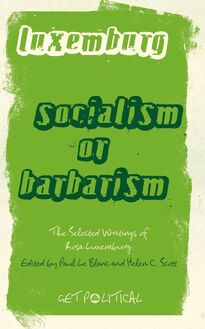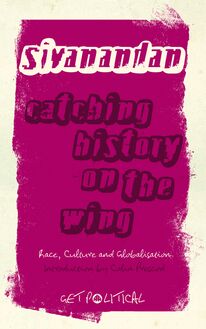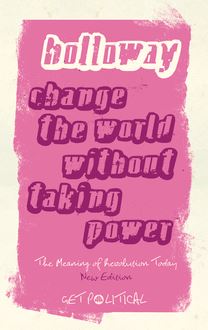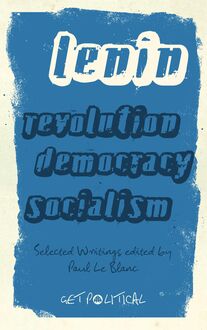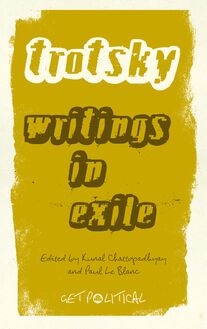Rosa Luxemburg: Socialism or Barbarism , livre ebook
142
pages
English
Ebooks
2010
Vous pourrez modifier la taille du texte de cet ouvrage
Obtenez un accès à la bibliothèque pour le consulter en ligne En savoir plus
Découvre YouScribe en t'inscrivant gratuitement
Découvre YouScribe en t'inscrivant gratuitement
142
pages
English
Ebooks
2010
Vous pourrez modifier la taille du texte de cet ouvrage
Obtenez un accès à la bibliothèque pour le consulter en ligne En savoir plus
Publié par
Date de parution
06 septembre 2010
Nombre de lectures
2
EAN13
9781783710799
Langue
English
Poids de l'ouvrage
1 Mo
Providing an extensive overview of her writings, this volume contains a number of items never before anthologised. Her work was broad in scope tackling capitalism and socialism; globalisation and imperialism; history; war and peace; social struggles, trade unions, political parties; class, gender, race; the interconnection of humanity with the natural environment. The editors provide an extensive and informative introduction outlining and evaluating her life and thought.
This is the most comprehensive introduction to the range of Rosa Luxemburg's thought.
Introduction by Helen C. Scott and Paul Le Blanc
Sources, Further Reading, Acknowledgements
1. The French Revolution
2. Reform or Revolution
3. Eight Hour Day – How to Win Reforms
4. Stagnation and Progress of Marxism
5. Organisational Questions of Russian Social Democracy
6. Socialism and the Churches
7. The Mass Strike, the Political Party, and the Trade Unions
8. Blanquism and Social Democracy
9. The National Question
10. Theory and Practice,
11. Women’s Suffrage and Class Struggle
12. Lassalle’s Legacy
13. The Accumulation of Capital –An Anti-Critique
14. The Crisis of German Social Democracy (Junius Pamphlet)
15.Two Prison Letters to Sonya Liebknecht
16. The Russian Revolution
17. Founding Convention of the German Communist Party
18. Order Prevails in Berlin
Index
Publié par
Date de parution
06 septembre 2010
Nombre de lectures
2
EAN13
9781783710799
Langue
English
Poids de l'ouvrage
1 Mo
Socialism or Barbarism
www.plutobooks.com
The Communist Manifesto
Introduction by David Harvey 9780745328461
Revolution, Democracy, Socialism
Edited by Paul Le Blanc 9780745327600
Catching History On The Wing
Foreword by Colin Prescod 9780745328348
Black Skin, White Masks
Forewords by Homi K. Bhabha and Ziauddin Sardar 9780745328485
Jewish History, Jewish Religion
Forewords by Pappe / Mezvinsky/ Said / Vidal 9780745328409
Theatre of the Oppressed
9780745328386
Staying Power
Introduction by PaulGilroy 9780745330723
Change the World Without Taking Power
9780745329185
Socialism or Barbarism
Edited by Paul Le Blanc and Helen C. Scott 9780745329888
This edition first published 2010 by Pluto Press 345 Archway Road, London N6 5AA and 175 Fifth Avenue, New York, NY 10010
www.plutobooks.com
Distributed in the United States of America exclusively by Palgrave Macmillan, a division of St Martins Press LLC, 175 Fifth Avenue, New York, NY 10010
This edition copyright Paul Le Blanc and Helen C. Scott 2010
British Library Cataloguing in Publication Data A catalogue record for this book is available from the British Library
ISBN 978 0 7453 2989 5 Hardback
ISBN 978 0 7453 2988 8 Paperback
ISBN 978 1 7837 1079 9 ePub
Library of Congress Cataloging in Publication Data applied for
This book is printed on paper suitable for recycling and made from fully managed and sustained forest sources. Logging, pulping and manufacturing processes are expected to conform to the environmental standards of the country of origin.
10 9 8 7 6 5 4 3 2 1
Designed and produced for Pluto Press by
Chase Publishing Services Ltd, 33 Livonia Road, Sidmouth, EX10 9JB, England Typeset from disk by Stanford DTP Services, Northampton, England Printed and bound in the European Union by CPI Antony Rowe, Chippenham and Eastbourne
CONTENTS
PART ONE: INTRODUCTORY ESSAY by Helen C. Scott and Paul Le Blanc
1 Introduction to Rosa Luxemburg
PART TWO: LUXEMBURG S SELECTED WRITINGS, 1893-1919
2 The French Revolution
3 Reform or Revolution
4 Eight Hour Day - How to Win Reforms
5 Stagnation and Progress of Marxism
6 Organisational Questions of Russian Social Democracy
7 Socialism and the Churches
8 The Mass Strike, the Political Party, and the Trade Unions
9 Blanquism and Social Democracy
10 The National Question
11 Theory and Practice
12 Women s Suffrage and Class Struggle
13 Lassalle s Legacy
14 The Accumulation of Capital - An Anti-Critique
15 The Crisis of German Social Democracy (The Junius Pamphlet)
16 Two Prison Letters to Sonya Liebknecht
17 The Russian Revolution
18 Founding Convention of the German Communist Party
19 Order Prevails in Berlin
Sources, Further Reading, Acknowledgements
Index
Part One: Introductory Essay
1
INTRODUCTION TO ROSA LUXEMBURG
Helen C. Scott and Paul Le Blanc
Perhaps more than any other Marxist, Rosa Luxemburg has been remembered in various and diverse works of art: in lithographs by Conrad Felixm ller and K the Kollwitz; poems by Bertolt Brecht and Oskar Kahnel; fiction by Alfred D blin; film by Margaretha von Trotta; painting by Diego Rivera and R. B. Kitaj; and more recently in a novel by Jonathan Rabb and music by the British post-punk bands Ludus and The Murder of Rosa Luxemburg. Possibly this is because although her life was short - she was only 48 when she was killed - she had a profound impact on world history. In fact, thousands gather in Berlin on the anniversary of her death, bringing red carnations to honour her memory.
Nor is Luxemburg simply a focal-point for the European avant-garde. In 2003 Dr Zweledinga Pallo Jordan, South Africa s then Minister of Arts and Culture and prominent in the ruling African National Congress (ANC), commemorated the anniversary of the assassination of South African Communist Chris Hani with a speech highlighting Luxemburg s famous remarks on socialist democracy: Freedom is always and exclusively freedom for the one who thinks differently. Not because of any fanatical concept of justice but because all that is instructive, wholesome and purifying in political freedom depends on this essential characteristic, and its effectiveness vanishes when freedom becomes a special privilege. In the following year, a remarkable gathering of radical students and township activists well to the left of the ANC placed Red Rosa at the centre of a 2004 Conference on War and Imperialism. The People s Republic of China has hosted more than one international conference on Rosa Luxemburg in recent years. In an Indian political context in which the left is overwhelmingly dominated by Communist parties largely influenced by traditions associated with Joseph Stalin and Mao Zedong, one of the most important left-wing scholars, Dr Sobhanlal Datta Gupta of the University of Calcutta, has presented a remarkable volume interweaving Luxemburg s writings with those of V. I. Lenin, Joseph Stalin, Leon Trotsky, and Georg Luk cs. 1
Rosa Luxemburg was the product of an age of change and instability, when socialism was central to a mass labour movement, and worldwide socialist revolution was a concrete possibility. Her premature death also marks a turning point in history. Close analysis of this moment, as in Pierre Brou s monumental history of the German Revolution, for example, brings to mind an alternative reality, one in which Luxemburg was not murdered; socialist revolution succeeded in Germany, rescued Soviet Russia and spread across the globe; and the twentieth century was spared Stalinism, fascism, and World War II.
But while such speculation may be tempting, it is more fruitful to look instead at the tangible legacy left to us by Rosa Luxemburg, which is both inspiring and instructive to those seeking progressive social change. Her clear sighted contributions to Marxism offer much that is relevant today: elaboration of the destructive and anarchic process of capitalist accumulation, inherently prone to militarism, imperialism, and crises; recognition of the impossibility of gradually reforming away these negatives, and therefore of the necessity of a revolutionary strategy; and an understanding of the world s working class as the vibrant force capable both of winning reforms and of forging a humane and sane alternative.
Early Life in Poland
Rosa Luxemburg grew up in Russian occupied Poland at a time of rapid economic and social transformation. She was born in 1871 (shortly before the insurgency of the French workers that led to the Paris Commune) in the Lublin border district, where many of the privations of serfdom were intact, even while young capitalist development brought new hardships. The Luxemburg family was relatively well off - her father managed a timber business - but nonetheless experienced periods of financial hardship, and of course faced the particular discrimination against Jews in Poland. Her parents were literate and cultured, and the children were encouraged to read broadly and achieve a rounded education. The family moved to Warsaw, which offered more opportunities even for those who suffered the triple yoke of oppression in the words of Rosa s main biographer, Paul Fr lich: [Rosa Luxemburg] belonged to the Russian people enchained by tsarism, the Polish people suppressed by foreign rule, and to the down trodden Jewish minority. 2 She was also female in a patriarchal society, and, due to a mistreated hip disease in childhood, suffered a physical disability. These personal experiences, and the suffering she saw around her - in addition to pervasive and brutal class inequality, at the age of ten she witnessed a violent pogrom - must surely have contributed to her lifelong abhorrence of oppression. While still at school she wrote a poem containing the line I want to burden the conscience of the affluent with all the suffering and all the hidden, bitter tears. 3
At the end of the nineteenth century the confluence of democratic revolution and industrial capitalist transformation was galvanising the global socialist movement. Luxemburg was part of this development in Poland: as a teenager she joined the underground party, Proletariat , that was engaged in organising trade unions and strikes, and running illegal factory circles around illicit Marxist literature. When that organisation was crushed by a series of mass arrests and executions, Luxemburg, like many of the other surviving members, went into exile.
The next period of her life was spent in Z rich, Switzerland, where she acquired a formal education at the university - she was awarded her doctorate in Public Law and Political Science in 1898 - and also became immersed in the exile Marxist networks that thrived there. Even at this young age she showed the political independence and courage that were to become her trademarks; she was never afraid to challenge the established authorities whether in the University or the Marxist movement. She soon started to make an impact in the Second Socialist International, the federation of parties from different nations that succeeded Marx s International Working Men s Association. She presented at her first Congress of the International in 1893; contributed articles to the German based journal Die Neue Zeit and many other publications; and helped found what would become the Social Democracy of the Kingdom of Poland and Lithuania (SDKPiL), along with fellow expatriate Leo Jogiches, who was a life-long comrade and for many years also her romantic partner.
German Social Democracy
It was a logical step to go from Z rich to Berlin, home to the largest party in the International, the Social Democratic Party of Germany (SPD), generally considered to represent the future for socialist organisation. Despite her outsider status - she was after all young, female, Polish, Jewish, physically small and walked with a limp - Luxemburg rapidly became not only a leading member of this formidable party, but one of its most outspoke
